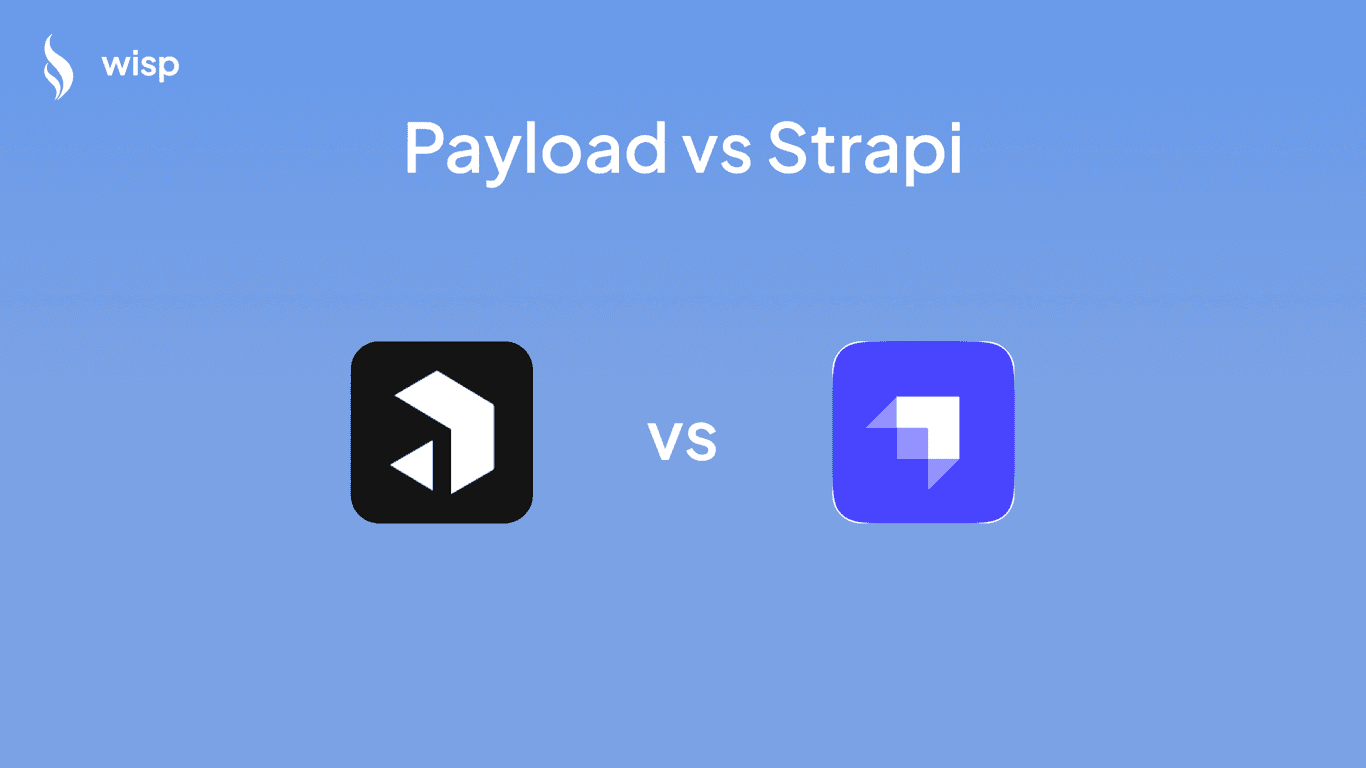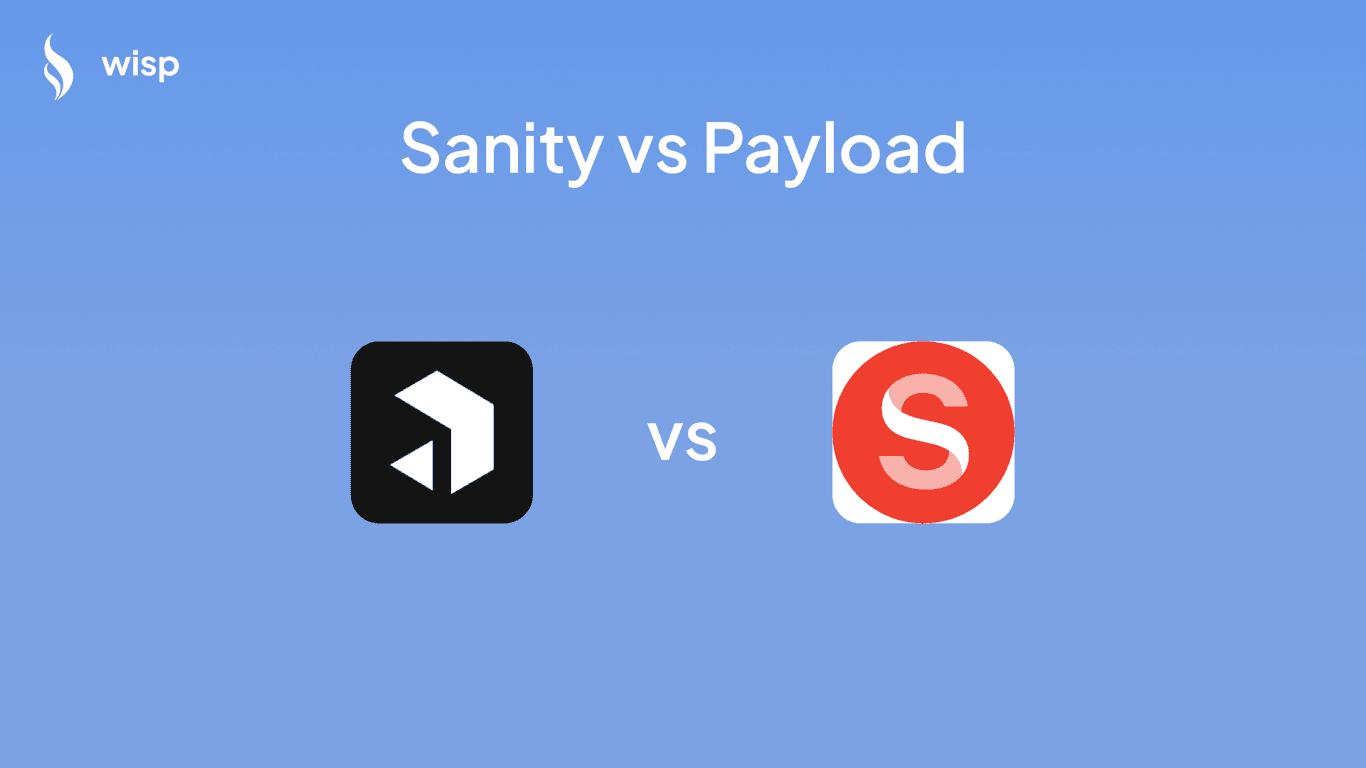
Introduction
Choosing the right Content Management System (CMS) is crucial for any organization’s digital strategy. This article provides an in-depth comparison of two popular CMS platforms in 2024: Payload and Directus.
We will explore their features, strengths, weaknesses, and user feedback to help you make an informed decision. Additionally, we’ll briefly recommend Wisp CMS as a potential alternative for those seeking an intuitive editorial experience.
Overview of Payload CMS
History and Founding
Payload CMS emerged as a modern, developer-focused headless CMS. Built with TypeScript, Node.js, and React, it aims to provide maximum flexibility and easy customization for developers.
Core Features
Open-Source Nature and Flexibility: Payload is fully open-source, allowing for extensive customization.
Developer-Centric Approach: The platform is designed with developers in mind, leveraging popular technologies like TypeScript and Node.js.
Extensible Architecture: Suitable for various applications from enterprise websites to native apps.
Pros and Cons
Pros:
Highly customizable.
Developer-friendly with a modern tech stack.
Robust API and extensive documentation.
Cons:
Frequent downtimes reported.
Complex setup and maintenance.
Performance issues when using multiple rich text editors.
User Reviews and Feedback
Gartner: Users appreciate the flexibility and ease of defining data structures but note issues with MongoDB No-SQL database integrations and changing data types.
Capterra: Users find the setup process cumbersome and ongoing maintenance challenging.
G2: Feedback highlights the CMS's intuitiveness and customizability but points to downtimes and the need for technical expertise in setup and maintenance.
Overview of Directus CMS
History and Founding
Directus is a well-established, open-source headless CMS known for its rich features and flexibility.
Core Features
Rich Feature Set: Directus offers a comprehensive range of features suitable for various use cases.
Flexibility: The platform is adaptable to different workflows and requirements.
User Interface and Experience: Directus provides a robust interface designed to enhance user experience.
Pros and Cons
Pros:
Extensive feature set.
Adaptable and flexible.
Cons:
Issues with installation and setup, such as dependency conflicts and database connectivity problems.
Performance concerns, especially with large datasets.
User interface complaints, particularly regarding the default WYSIWYG toolbar.
User Reviews and Feedback
GitHub Issues: Users have reported installation and setup challenges, performance slowdowns with large data, and issues with the user interface.
General Feedback: While praised for its flexibility and features, Directus faces criticism for its complicated setup process and performance issues.
Detailed Comparison: Payload vs Directus
Ease of Setup and Installation
Payload: Setup can be complex and time-consuming, requiring significant technical expertise.
Directus: Installation issues like incorrect environment variables and database connection problems are common complaints.
Performance and Scalability
Payload: Users report downtimes and performance issues, especially with multiple rich text editors.
Directus: Concerns include slower load times and less responsiveness when handling large datasets or numerous concurrent users.
User Interface and Experience
Payload: Generally praised for its intuitive and developer-friendly interface.
Directus: Mixed reviews, with some users finding the interface cluttered and difficult to navigate, especially after updates.
Customization and Flexibility
Payload: Highly customizable, allowing users to define their own data structures and extend functionality through code.
Directus: Offers flexibility but may not be as easily customizable without diving into complex configurations.
Support and Community
Payload: Active community support, though some users find it challenging to get immediate help for complex issues.
Directus: Extensive community resources and support, but users report occasional difficulties in finding solutions to more intricate problems.
Alternative Recommendation: Wisp CMS

Why Consider Wisp CMS?
Wisp CMS is designed for simplicity and an exceptional editorial experience. It is particularly suitable for small teams and startups but can scale with the team’s growth. Key features include:
Simple Setup: Seamless headless CMS architecture.
Intuitive Editorial Experience: Clean, focused writing environment with drag-and-drop image uploads and powerful slash commands.
Global Content Delivery: Fast and reliable content delivery via Cloudflare CDN.
For those looking for an alternative CMS, we recommend exploring Wisp CMS.
Try out Wisp's intuitive editor at Wisp Editor today.
Conclusion
In conclusion, both Payload and Directus offer robust features and flexibility but come with their own sets of challenges. Payload is highly customizable and developer-friendly but faces issues with downtime and setup complexity. Directus is feature-rich and flexible but struggles with installation, performance, and user interface concerns.
For those seeking a CMS that balances simplicity and functionality, Wisp CMS is worth considering. It provides a delightful editorial experience, making it ideal for small teams and scalable for growth.
By understanding the strengths and limitations of each CMS, you can choose the one that best fits your needs.



